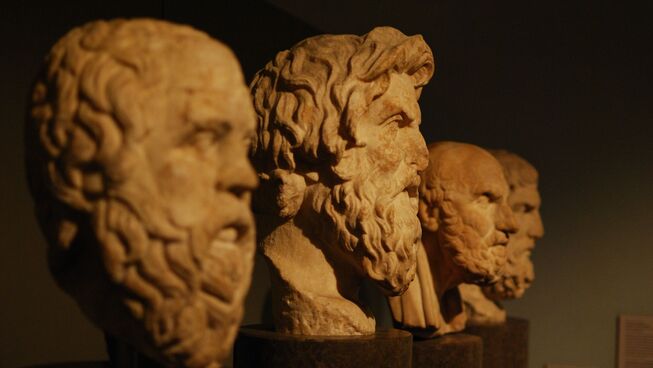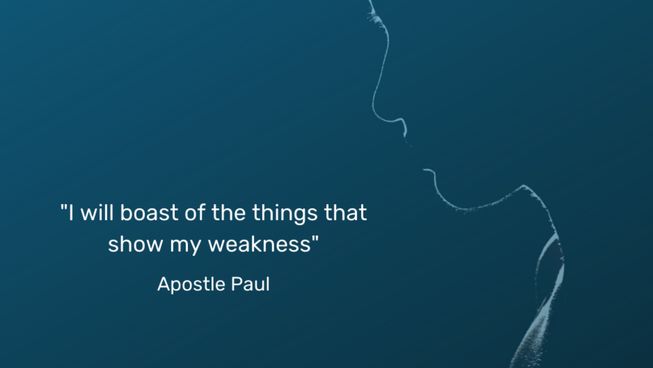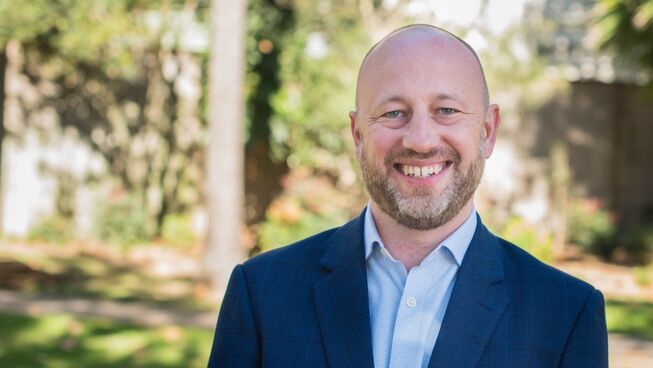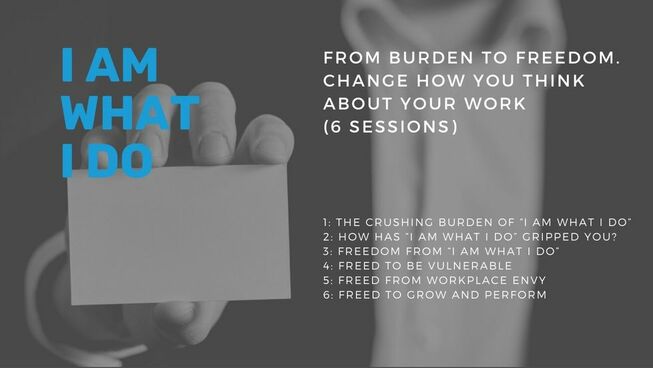How to be unmasked in “the age of perfection”
Topics

August 19, 2013 is a significant date for me, or at least for my online footprint. That is the date of my first ever Instagram post. It was a photo of my eldest daughter and I wearing our bike helmets, accompanied by the simple caption “Bike ride last week”.
At the time I thought it was a cute photo, but as I look back on it now I realise it probably wouldn’t pass today’s ultimate test for Instagram. My messy cropping, bad lighting, and poor choice of filter means it wasn’t particularly insta-worthy.
The age of perfection
Insta-worthy is such a fantastic word that captures a spirit of our age, what sociologists have described as “the age of perfection”. Whether it’s our bodies, our CVs, or our homes, many of us feel constant pressure to present as perfect. And with a little cropping, clicking and curating, social media tells us that we can.
Author Candice Lapin describes this pressure well in Parenting in the age of perfection. “We have become a culture wildly afraid of imperfection. In our insta-everything world, we give people ‘our good side.’ We pose. We curate…In a world like this, the pressure for surface appearances has created no room for mistakes, compassion nor imperfection”.
However this pressure is not without its down sides. Author Will Storr details them in Selfie, concluding that in the age of perfection we inevitably “put on a false front of seeming perfect, where you cover up mistakes and shortcomings”. In other words, we put on a mask to present as perfect.
Even the rise in recent years of pursuing authenticity, or #keepingitreal doesn’t really change the equation. Posting that photo of the messy room, or the selfie without makeup might create the illusion of being unmasked, but as one writer perceptively states, “The ‘reality’ photos and statuses published are just as much a mask as the perfect happy posts we broadcast. Neither show our cyber friends who we really are. We are safe from vulnerability, risk of failure, and have complete control of the image we portray of ourselves”. [1] That is, I still choose the “real” version that you see of me. Australian author John Marsden has summed it up well: “Society is based on the masks we wear”. In the age of perfection, you bet it is.
How do I take off the mask?
And yet the Christian person knows that it is in being honest, open, even weak and vulnerable with others that deep relationships develop, relationships which can be fruitful for Gospel witness. Yet what I’ve just described makes such deep relationships hard to foster. When we and others are always wearing masks, presenting as perfect, what hope is there of “going deep” with others? The starting point is that we need to find a way to take off our own masks. But that’s easier said than done. So where do I find the strength to take off my mask?
One of the reasons we find it so hard to be unmasked is because we care so much about the opinion of others. A question that lurks not far below the surface of every decision I make about what I should say, do think, or wear is this: “How will this make me look in the eyes of others?”
That question often haunts me, but I don’t think I’m the only one. Psychologists say the desire for validation is one of “the strongest motivating forces known to humankind”. [2] I’m aware of this force at work in my life when I find myself checking back on my social media posts again and again and again to see if they’ve had any more likes. I’m aware of it when someone else gets credit in the workplace that I believe I’m due and how envious that makes me feel. I’m aware of it too in my personal evangelism, when I find myself trying to steer the conversation away from a topic where my views as a Christian will be considered controversial. As one writer summarises, “Perhaps the single most significant hindrance to Christian witness in the world today is our hunger for human approval. We crave acceptance and dread rejection — which inclines us toward whatever might improve others’ perception of us”. [3]
Given the approval of others is such a strong motivating force, how do we find the strength to take off our masks, when being unmasked might leave us open not to approval, but ridicule, critique, or even rejection?
The example of Paul
The Apostle Paul provides us with a model for how, because he seems to possess something many of us don’t, that is, the ability to rise above the question, “How will this make me look in the eyes of others?” He demonstrates this time and again in his letters to the Corinthians.
Both 1 and 2 Corinthians record the strained relationship Paul had with the church he founded in Corinth. In particular, they’re questioning his leadership, and mocking his authority. How would you respond if you faced this kind of mocking of your leadership in the workplace? In Paul’s case he doesn’t double down, and try and create just the right leadership image, seeking to maintain a brave face and pretending its business as usual. Instead he unmasks himself, revealing to the very people questioning him, how confused, upset, hurt, and even weak he is. He describes himself to them as weak and fearful (1 Corinthians 2), admits he is unworthy to be called an apostle (1 Corinthians 15), and concedes he is an “untrained public speaker” (2 Corinthians 11).
How can Paul be so honest, and care so little about putting on a strong front? Because this is how he considers himself in the eyes of others: “I care very little if I am judged by you or by any human court. I do not even judge myself” (1 Corinthians 4:3). “How will I look in the eyes of others?” has no power over Paul. Even his own opinion of himself does not drive him.
Where does this perspective come from? Not from himself, or from within, although that’s where modern therapy and pop psychology says it’s to be found. “Be true to yourself regardless of what others think of you”.
A strength outside of us – identity in Christ
No, woven through 1 and 2 Corinthians is another answer. The strength to be unmasked comes from outside us. It comes from God. God has declared Paul perfect, righteous. This is his identity. And it is out of the confidence of this that Paul lives unmasked. In 2 Corinthians 5:17 Paul describes all Christian believers like this: “If anyone is in Christ, the new creation has come: the old has gone, the new is here”. Christians are people who are “in Christ”. All that is true of Jesus is true of His followers; His status is our status.
But there is something specifically true of Jesus that gives Paul the confidence to live unmasked. “God made Him who had no sin to be sin for us, so that in Him we might become the righteousness of God” (5:21). Jesus lived a perfect life, without fault, flaw, or failing. And so that is the status of those in Him: righteous, perfect. A perfection that no cropping, clicking, or curating could ever give you.
This is why Paul can say, “I care very little if I am judged by you or by any human court”. If you think little of me. or think I’m unimpressive, or even if you mock, ridicule, or take advantage of my vulnerability, “I care very little”, because in the courts of heaven God says of me “righteous”. Perfect. And in the courts of heaven, God says of all those in Christ “righteous”. Perfect. Not in the Insta-worthy sense, but God-worthy. In the age of perfection, those in Christ already are.
Living out of the confidence of who we are in Christ
Do you see how it is out of the confidence of this identity that we can live unmasked, and have the freedom to reveal our true selves? Because how you might respond to my unmasked self has zero impact on my true identity. Whether you praise me or persecute me I care very little because it changes nothing about who I am in Christ, before God. So there is no need for me to act with false bravado, or live in fear of how you might assess me. It’s the end to that question which might haunt you, “What will others think of me?”
One writer helpfully summarises this freedom like this: “It’s nice to think that someone important might think that you’re someone important too. And there are more than seven billion people in the world, which makes it a little hard to escape all consciousness of what any of them think of you. But the approval of one God is worth infinitely more than the praise of seven billion earthlings”. [4] Or to apply it specifically to our workplaces, the approval of one God is worth infinitely more than the praise of your colleagues.
Humble confidence
Instead of the pursuit of others approval, in its place grows a humble confidence. We can live with confidence because before the One that truly matters I am righteous. But this confidence is tempered with humility, because this approval I enjoy is none of my doing – it is all the work of Christ on my behalf!
Instead I enjoy the freedom of living unmasked, not worried if I don’t have the approval of my colleagues, because I have the approval of my Creator. The degree to which we know and embrace who we are in Christ is the degree to which we will live unmasked.
The freedom of being unmasked
To live like this is freeing. Wearing a mask is exhausting, always trying to give the impression that we’ve got it all together, acting like a duck which above the surface appears all calm, but underneath the water its feet are paddling like crazy. I have personally learnt that it is much harder to wear a mask than it is to live unmasked, and be honest if I’m not doing ok, or I don’t know something in the workplace, or confess a mistake that I have made.
But when should I take off the mask?
However is unmasking to all always what’s needed in the workplace? Are there times when I need, perhaps for the sake of my team, to be strong for them – being that duck and keep the mad paddling hidden is what’s best.
This is a question of wisdom, and like all issues of wisdom there is one guiding principle: love. Love is to be our guide in working out how and when to remove the mask. Specifically, love of God and His glory, and love of your colleagues, not love of self and your reputation.
Love will sometimes demand certain unmasking, even if it is costly for you. Other times however love will direct you to seek to provide the Lord’s strength and comfort to those looking to you for it.
The witness of unmasking
As the freedom to live unmasked grips our lives that is something that will be unmistakable in our lives to those around us. In a society “based on the masks that we wear”, living unmasked will be counter-cultural, and powerfully attractive. To your colleagues who are exhausted by their own mask wearing you will shine out like a light, and it will only be a matter of time before the questions comes, “Where do you find the confidence to be unmasked?”
And in that moment the answer is clear. It’s not the result of some special strength that you possess. But rather, in an age of perfection you know that in Christ you already are. So like Paul you can say, “I care very little if I am judged by you or by any human court. I do not even judge myself”, because the only verdict about yourself that matters is the one God declares, and in the courts of heaven God says of you “righteous”. And it’s out of that confidence you live unmasked.
[1] desiringgod.org/articles/the-false-reality-of-social-media
[2] psychcentral.com/blog/what-drives-our-need-for-approval
[3] desiringgod.org/articles/the-haunted-hayride-of-human-approval
[4] Geoff Robson, Thank God for bedtime.
More like this ...









